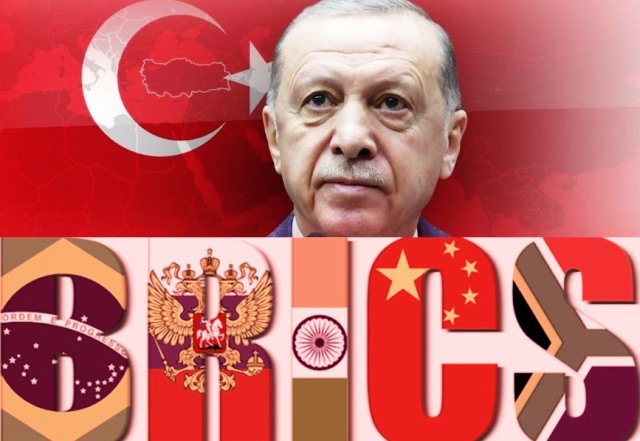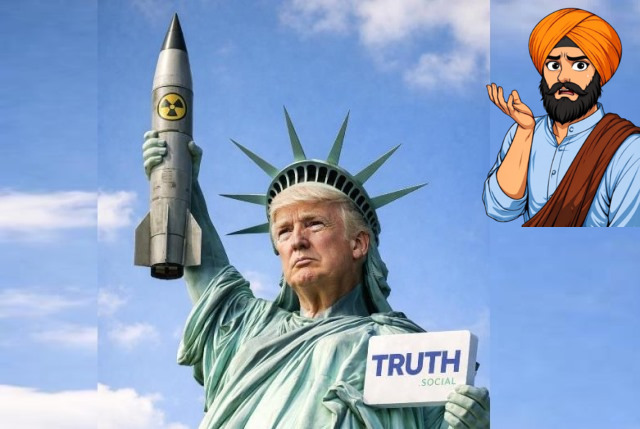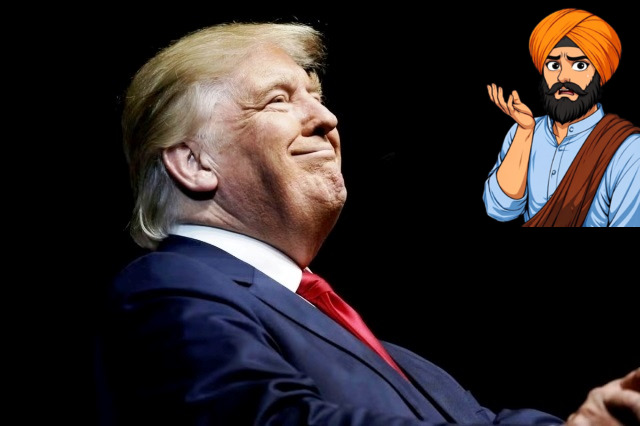
Can Turkey’s Entry Into BRICS Be A Threat For India?
Recep Tayyip Erdogan, 70, has been Turkey’s president since 2014. Before that, Erdogan, a strongman who wields an iron hand in his country, was prime minister for around 11 years. His party, the Justice and Development Party (AKP), is socially conservative and emphasises traditional Islamic values, and Erdogan often employs nationalist rhetoric and policies.
Erdogan is not typically described as a fundamentalist, but his approach to Islam in politics is significant. He comes from a background of political Islam and has roots in Turkey’s Islamist movement and although he initially portrayed himself as a moderate, pro-Western Islamic democrat, over time, he has increasingly emphasised Islamic values in public policy and rhetoric. Yet, while he has challenged aspects of Turkey’s traditional secularism, he hasn’t sought to completely dismantle it.
Erdogan’s relationship with Russia is complex and pragmatic rather than strictly pro or anti-Russia. He has cooperated with Russia on energy projects, military purchases (e.g., S-400 missile system), and in Syria but he has also had significant conflicts with Russia, including Turkey’s downing of a Russian jet in 2015 and opposing sides in conflicts like Libya.
Erdogan can seem to be trying to balance relations with Russia and the West, often playing them against each other for Turkey’s benefit. This is significant because, since 1952, Turkey has been and remains a member of NATO whose purpose is to guarantee the freedom and security of its members, who represent most of the Western world, through political and military means
Why is the focus on Erdogan and Turkey?
Why am I going on about Erdogan? Because as of last week, Erdogan’s Turkey has made a formal bid to join BRICs, the intergovernmental organisation comprising Brazil, Russia, India, China, South Africa, Iran, Egypt, Ethiopia, and the United Arab Emirates.
Formed in 2006, the purpose of BRICS was to bring together the world’s most important developing countries, to challenge the political and economic power of the wealthier nations of North America and Western Europe. As it has expanded, with new members such as Argentina, Egypt, Ethiopia, Iran, Saudi Arabia, and the United Arab Emirates invited to join the organisation this year, it has emerged as a powerful geopolitical counterweight to the West.
The expansion and growing influence of BRICS represent a significant shift in the global order that has prevailed since the end of World War II. This change reflects the broader trend of power diffusion from the West to emerging economies, particularly in Asia.
The significance of Turkey’s bid to join BRICS is important because if that happens, it will become the first NATO member to come aboard.
While BRICS is not a military alliance, its growing economic and political coordination could indirectly affect NATO’s strategic calculations. The strengthening of ties between Russia and China, in particular, presents a complex challenge for NATO’s strategic planning. Now, with a NATO member trying to join BRICS, the situation can turn rather complex.
Turkey’s geographic position, straddling Europe and Asia, has made it a crucial NATO ally, particularly during the Cold War. It controls access to the Black Sea through the Bosphorus Strait and borders several key regions, including the Middle East and the Caucasus.
On the one hand, Turkey has been a key member of NATO. Turkey maintains the second-largest army in NATO after the United States. It has participated in numerous NATO operations, including peacekeeping missions in Kosovo and Afghanistan, and has hosted NATO missile defense systems, including early warning radar as part of the alliance’s missile shield project. It has also been a key partner in NATO’s counter-terrorism efforts, particularly given its experience in combating domestic terrorist groups and its proximity to conflict zones in the Middle East.
ALSO READ: All Eyes on Russia as its Tiny Neighbour Finland Joins NATO
On the other hand, in 2017, Turkey signed a deal to purchase the Russian S-400 air defence system, leading to significant tension with NATO allies, particularly the US. Turkey’s military operations in northern Syria, particularly against Kurdish forces who were US allies in the fight against ISIS, have caused friction within NATO. These actions have sometimes been viewed as undermining NATO’s cohesion and objectives in the region.
Turkey’s warming relations with Russia, including energy cooperation and the purchase of military equipment, have raised concerns among NATO allies about Turkey’s commitment to the alliance’s collective security objectives.
Most recently, Turkey initially opposed the accession of Sweden and Finland to NATO, citing concerns about these countries’ alleged support for Kurdish groups that Turkey considers terrorist organisations. This led to prolonged negotiatioAns and delays in the expansion process.
Will Russia back Turkey’s bid to join BRICS?
The short answer to that question is yes. So could China. BRICS is a relatively loose organisation compared to NATO. There are no military treaties that bind BRICS members and, ostensibly, the organisation’s main focus was on economic development and trade cooperation among members.
In fact, the concept and the BRICS moniker were initially coined in 2001 by an investment banker, Jim O’Neill, then-chairman of Goldman Sachs Asset Management. In his paper, “Building Better Global Economic BRICs.” O’Neill identified these countries as having the potential to become dominant economies in the 21st century.
Since its formation, the organisation has come a long way. Two of its members, China and Russia, are formidable forces, economically and militarily, and are allies that pose a real challenge to the west-dominated world order. Another member, India, has grown into a major global economy and, in the West’s scheme of things, plays a critical strategic role against the rise of China.
BRICS’ importance has, therefore, transcended its role in promoting trade and development among its members to becoming a key player in the changing dynamics of geopolitics. With the entry of a NATO member, the complexity of BRICS would increase.
What does this mean for India?
Let’s take a look first at India’s relations with Turkey. Trade relations between Turkey and India have been growing, with both countries seeking to expand bilateral trade and investment. The two countries maintain diplomatic ties and engage in high-level visits.
That’s the good news. The not-so-good news is that there have been some points of tension between the two countries in recent years.
Turkey’s support for Pakistan’s position on the Kashmir dispute has been a significant source of friction with India. Turkey has raised the Kashmir issue at international forums like the UN, which has not been well-received by India. While there have been some defence collaborations between the two countries, the relationship in this area is limited compared to Turkey’s ties with Pakistan or India’s ties with other countries.
Turkey’s closer ties with Pakistan and its attempts to increase its influence in the Muslim world have sometimes put it at odds with India’s interests.
Turkey’s move to join BRICS comes at a time when there are major shifts in the geopolitical situation. The ongoing Russia-Ukraine conflict is entering its third year. Since Hamas’s attack against Israel on October 7, Israel’s offensive in Gaza is continuing and the risks of escalation, involving Iran and other entities in the region, is now real. In the US, all eyes are on what happens in the November 5 presidential election: the two contenders, Donald Trump and Kamala Harris, have diametrically opposite views on NATO’s role in Ukraine and peace moves in the Middle East.
India has for long adopted a non-aligned or, as some call it, multi-aligned foreign policy. It balances a cordial relationship with Russia with its strategic relationship with the US. India’s Prime Minister has visited both Russia (to meet with President Vladimir Putin) and Ukraine (to meet President Volodymyr Zelensky). India’s relationship with China is testy, mainly driven by the fact that China is a huge economic rival, several-fold more powerful than India; its advances in India’s neighbourhood have been rapid; and continuing conflicts with India over territorial disputes have been irksome.
If BRICS is shored up further by the entry of a critical player such as Turkey and a strong China-Russia-Turkey axis emerges within that organisation, where would that leave India? Would it unbalance its foreign policy strategy of tightrope walking?
For more details visit us: https://lokmarg.com/



